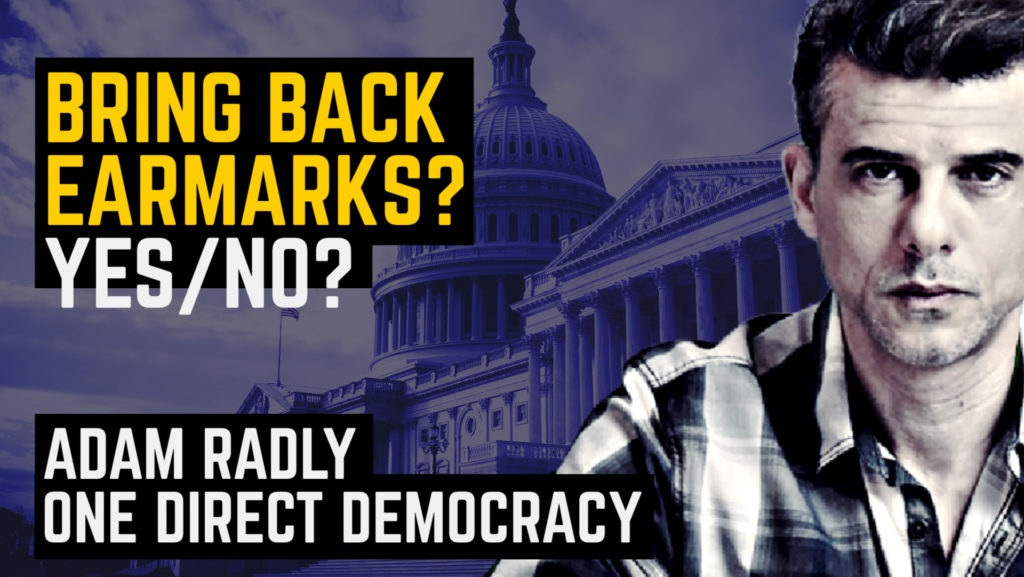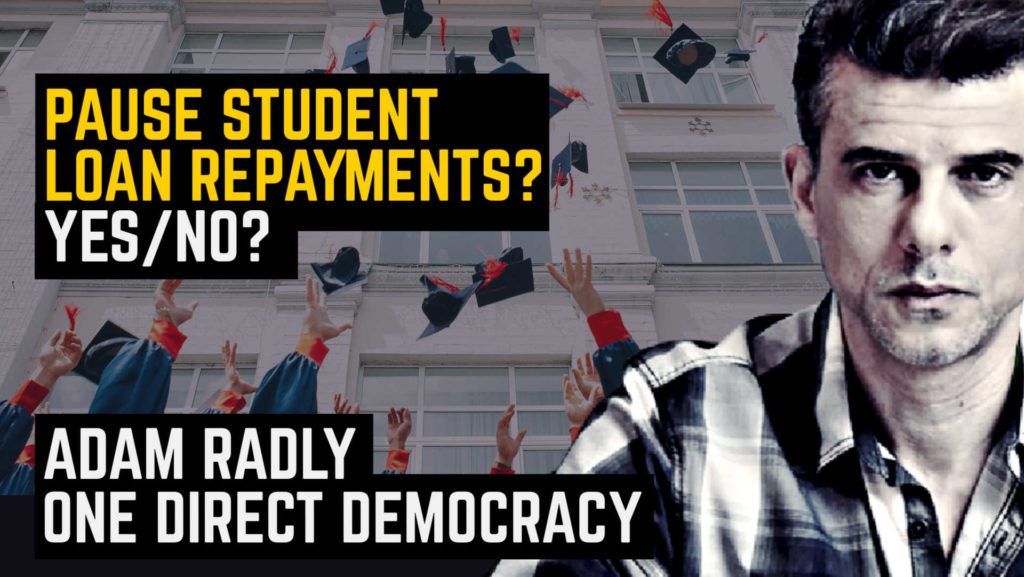Bring Back Earmarks? Yes/No?
Congress has decided to resume using earmarks. It was always known as “pork” or “pork-barrel spending”. The reason it was known by those names is that it involved spending taxpayer money on small, low-priority projects that only matter to one politician. Why was it used in the first place? Why was it eliminated? And why has it made a comeback?
If you could vote directly on this policy to resume using earmarks in Congress, would you vote for it or against it?
So what is an earmark? According to this article about Earmarks from CNN:
“Member-directed spending” is just a fancy name for earmarks — a system by which federal spending in a certain district or state can be appended to legislation as a sweetener for the members of Congress representing those areas.
“Earmarks had long been part of the legislative process as a way to grease the wheel of bill-passing.”
“How did it “grease the wheel of bill passing”? In simple terms, if a particular politician didn’t want to vote for a bill, they could be convinced to change their minds by including some additional funding for some small project in their jurisdiction. How and when did this start to change?”
“But beginning in earnest with Arizona Sen. John McCain’s 2008 campaign for president, earmarking began to be regarded as a bad thing. McCain was a longtime opponent of earmarks — known derisively as “pork” to Beltway insiders — and would regularly call out what he believed to be over-the-top pet projects inserted into bills by lawmakers.”
McCain made a big deal out of it during his run for President. That’s when everybody outside of politics became aware of it and they didn’t like it.
“Although McCain lost that race, former House Speaker John Boehner, himself a longtime opponent of so-called “pork-barrel spending,” saw his chance. As part of Republicans’ 2010 campaign for Congress, Boehner targeted the elimination of earmarks as a way to signal to the average voter that it was time to change the way Washington did business. When Republicans retook the House majority in that election, Boehner did exactly as he had promised — he got rid of earmarks entirely.”
This made sense in concept. The approval rating for Congress was at approximately 10% at the time and this was a way for Congress to do something that gave people more confidence in Congress.
“It seemed, at the time, like a smart political move. People were sick and tired of the insider game played by those in Washington — the massive earmarking scandal involving California Rep. Randy “Duke” Cunningham had been national news earlier in the decade — and banning these pet projects seemed like a way to get corruption (or the appearance of corruption) out of politics.”
Of course, what’s good for the people may not be good for politicians.
“What happened, in practice, was that leaders in both parties lost leverage over their rank-and-file members. They no longer had a carrot to dangle in front of wavering members to get them to sign on to a piece of legislation where the vote was tight.”
So be to be clear about this, a lot of politicians simply decided not to vote for a bill unless there was something in for them.
“That loss of leverage was compounded by the rise of third-party groups — led by super PACs — over the past decade. Their ascension signaled a diminution in the power of political parties. No longer could party leaders overseeing campaign committees bend members to their will by offering — or withholding — support.”
So if one of the major parties created a big and important bill, they had lost the ability to incentivize their party members to vote in favor of it.
“Add those two factors together, and you get developments like the rise of the House Freedom Caucus, a rump group that has no loyalty to or fear of party leaders. And over the last decade, it’s the extremes — like those represented by the Freedom Caucus — who have increasingly have influence in Congress.”
So now, instead of the party leaders controlling the party, you have super PACs and these artificial internal caucuses running around doing their own thing.
“The simple fact is that without earmarks in the modern political climate, congressional leadership has no tools to cajole and convince lawmakers to be for anything. The default position has, therefore, been “no.” Obstruction — on everything — has been the order of the day.”
This is my personal opinion on this issue:
There are two problems with earmarks. The first problem is that it creates a lot of confusion when deciding on whether to vote for a bill about one issue when spending for multiple unrelated issues has been bolted on to it for no reason other than to fund the pet project of a member of congress.
The second problem is that every member of Congress knows that they can hold their entire party or the entire Congress to ransom by simply saying that they will only vote for a bill about an important issue if they get funding for some other unrelated project that only matters to them.
Is this reasonable negotiation or is it legalized extortion?
The problem here is the use of representative democracy. None of this would happen if we use direct democracy.
I’ve created a listing on the One Direct Democracy platform so that we can develop ideas about How can we improve the rules for the use of earmarks? You can add your own ideas or vote and comment on ideas from other people. You can also create your own listings for people to vote on. It’s a simple way to get used to using the One Direct Democracy system.
So that’s the summary of the key issues.
If you could vote directly on this proposed policy to make daylight savings permanent, would you vote for it or against it?
The reality is that we have reached a point in time in our evolution where Representative Democracy no longer serves the will of the people.
That’s why I created One Direct Democracy. It’s a movement for upgrading the global democratic system by taking the power away from politicians and putting it in the hands of the people by using direct democracy.
I’ve created the technology, a framework for direct democracy and a plan for how to make it happen. We don’t have to convince any politicians or powerful people to do anything to make this happen. We have the power to do it on our own. We just have to decide to do it.
Direct Democracy is the purest form of democracy.
Representative Democracy is an outdated blunt instrument.
Links to related content


